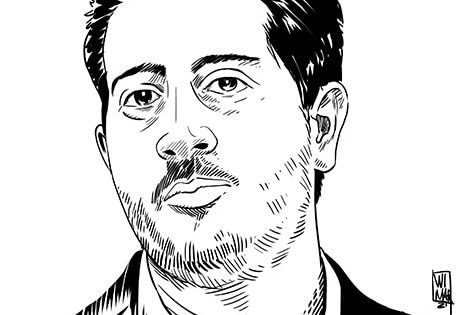(RSF/IFEX) – RSF has welcomed the 13 November 2003 release of independent journalist Bernardo Arévalo Padrón after six years in prison for “insulting” President Fidel Castro and Vice-President Carlos Lage. The organisation noted, however, that Cuba is still the world’s biggest prison for journalists. Twenty-nine other independent journalists are still being held in Cuban jails. […]
(RSF/IFEX) – RSF has welcomed the 13 November 2003 release of independent journalist Bernardo Arévalo Padrón after six years in prison for “insulting” President Fidel Castro and Vice-President Carlos Lage.
The organisation noted, however, that Cuba is still the world’s biggest prison for journalists. Twenty-nine other independent journalists are still being held in Cuban jails. Twenty-six were arrested in March along with about 50 other dissidents in an unprecedented crackdown. Each journalist was sentenced to between 14 and 27 years in prison (see IFEX alerts of 13 November, 31 October, 4 and 3 September, 26, 13 and 8 August, 18 July, 6 June, 27 and 22 May 2003 and others).
“The release on 13 November of Arévalo Padrón, head of the former news agency Línea Sur Press, has put an end to his family’s suffering,” the organisation said. “But he had to serve his full sentence, without any reduction. The authorities made him pay a heavy price for criticising them.”
On 28 November 1997, Arévalo Padrón was sentenced on appeal for “insulting” Castro and Lage by calling them “liars” on Radio Marti, a United States government-funded station that broadcasts from Florida. He had accused them of failing to keep promises about democratisation they made during the 1996 Iberoamerican Summit.
Pedro Castellanos, leader of the banned Democracy Movement party, said Arévalo Padrón phoned him on 13 November to say he had been released that morning and given his official release certificate without explanation. The journalist reportedly told Castellanos that he was planning to resume his writing as a member of the José Maceo independent news agency.
Since July 2002, Arévalo Padrón had been held at Ariza prison, in the central province of Cienfuegos, after four and a half years of being transferred to various jails and several labour camps where he was forced to cut sugarcane. His wife, Libertad Arévalo, said he suffered from back and heart problems and leptospirosis.
In October 2000, he qualified for early release, having served half his sentence, but was kept in prison because he had allegedly “failed to comply with a re-education programme.”


